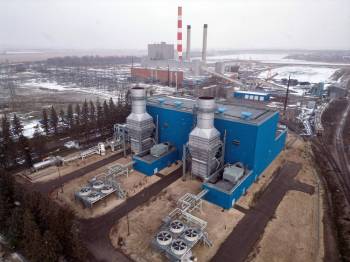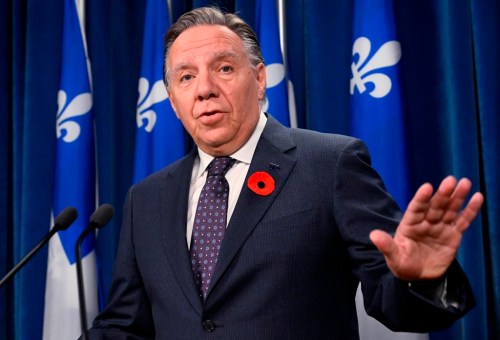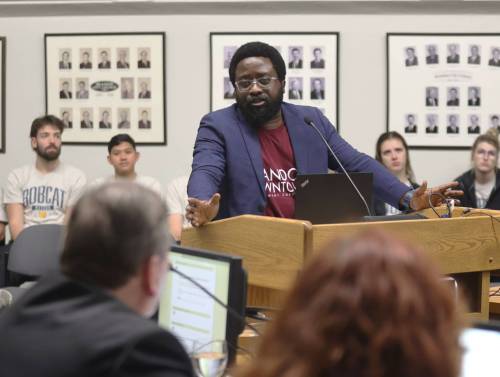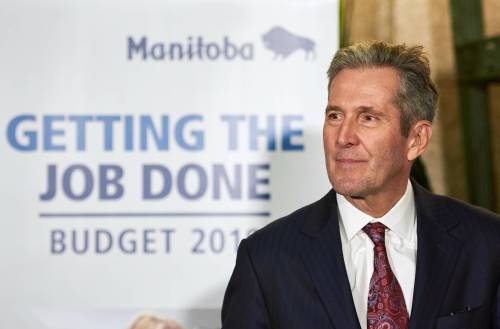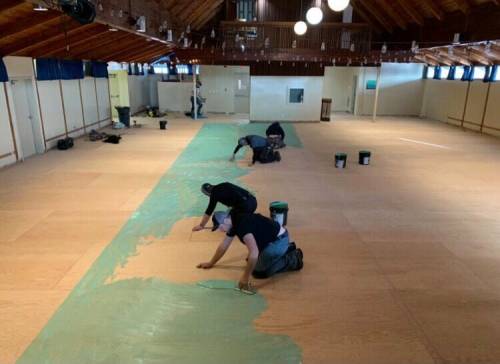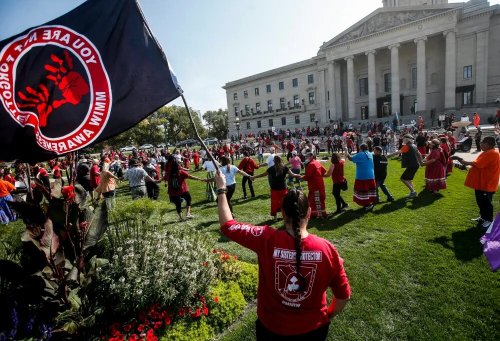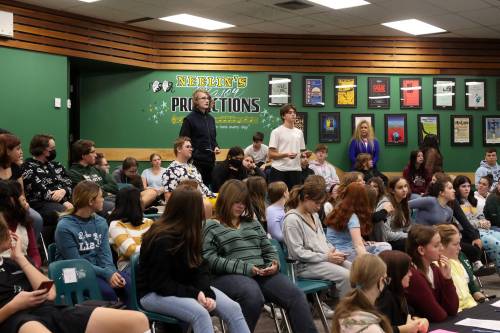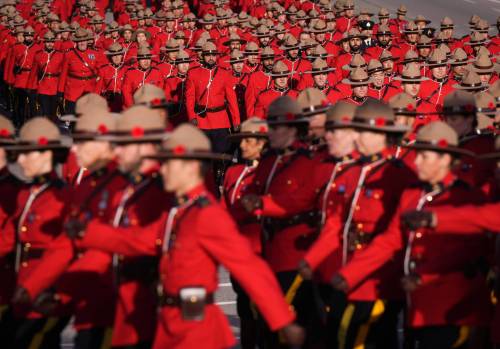Columnists
Fossil fuels not where the puck is going
5 minute read Friday, Sep. 5, 2025“Go where the puck is going, not where it’s been.”
Sage words from hockey great and erstwhile philosopher Wayne Gretzky. What works on the ice also works with energy.
In recent weeks, fossil-fuel boosters argued that more pipelines for expanded oil and gas production by Canada are needed, pooh-poohing renewables such as wind and solar as impractical, even calling for new methane (natural gas) plants to meet rising demands.
These arguments reflect a deliberate ignorance of a rapidly changing world. Renewables, either this year or next, will eclipse coal as the globe’s biggest energy source. The meteoric rise of renewables this century has surpassed all projections, a big reason being that wind and (especially) solar are now the cheapest energy on the planet.
Advertisement
Weather
Brandon MB
-13°C, Clear
How AI threatens democracy
4 minute read Preview Wednesday, Aug. 20, 2025Is this a PM in waiting?
5 minute read Preview Saturday, Dec. 7, 2024A troubling plan — but is it a sign of the future?
5 minute read Preview Saturday, Nov. 30, 2024Put risk with those who stand to make a profit
5 minute read Preview Saturday, Oct. 12, 2024Growth doesn’t pay for growth after all
6 minute read Preview Saturday, Aug. 31, 2024Universal daycare not a pipe dream
5 minute read Preview Wednesday, Jun. 26, 2024Hiding behind blackout will persist until law is changed
5 minute read Preview Tuesday, May. 28, 2024Leave a legacy and bring light to darkness
5 minute read Preview Monday, Dec. 18, 2023Lighting a candle in our dark world
5 minute read Monday, Nov. 6, 2023I was at a family event to celebrate Thanksgiving last month, just a few days after the Hamas attack in Israel. People were exchanging greetings of “Happy Thanksgiving” and I was thinking “What is there to be happy about?” Whether you are on one side of this conflict or on the other, sitting on the fence or stuck on both sides, the Middle East situation is another indication that longstanding divisions in our world have not been sorted out and that the cycle of violence in history will just continue “forever.”
Of course, alongside that particular massive conflict, we also have Ukraine and numerous other “smaller” ones around the world — some of them international and others civil — that we hear less about because the news reporters don’t get there to cover them. And then there are the non-conflict issues that face us — a pandemic that won’t entirely go away, the climate change crisis that has literally fueled wildfires, storms and floods, and the growing intolerance and authoritarianism that arises when our human family is under great stress.
Happy, huh? A few years ago, I chaired a panel discussion with speakers from several international aid agencies. At the time, this session was recorded by a videographer and used in education and training programs for people studying international development. One of my questions to the panel was, “Are we making progress in improving the human condition or does our aid and development work just cope with the crisis situations that arise?”
The answer wasn’t simple. If you look at statistics or if you have long experience in Third World countries, you can see that progress is being made. As an example, I traveled in East Africa a few years ago after being away from that region for a decade. I went to eat at a rooftop restaurant at a modern hotel where the clientele in the past had been largely white expatriates and foreign tourists. This time, there were lots of local Black people, evidence that there was a growing, national middle class. I also saw that Western products and modern department stores were more prominent. If that is one measure of progress, then I had found it.
Pizza ingredient origins a global gift
5 minute read Preview Thursday, Oct. 19, 2023No longer the party of Duff Roblin
4 minute read Preview Monday, Oct. 2, 2023Reflections on the International Day of Non-violence
4 minute read Monday, Oct. 2, 2023Every year on the anniversary of Mahatma Gandhi’s birthday, Oct. 2, the International Day of Non-violence is observed around the globe. The United Nations adopted International Day of Non-violence to affirm the message of non-violence and to strive towards a tolerant and peaceful society.
Throughout Gandhi’s life, he achieved many feats of diplomacy, from fighting for Indian and African rights in South Africa to disobeying British rule in India. He played a key role in gaining Indian independence from Britain.
Perhaps the greatest movement Gandhi started was the Salt March. Gandhi and thousands of Indians marched about 380 kilometres to protest the tax on salt that affected the poorest of the poor as well as the British occupation of India. The protest resulted in nearly 60,000 incarcerated Indians.
During World War II, Gandhi started the “Quit India” movement, which revolted against British occupation of India and Indian aid in the war. It resulted in Gandhi’s arrest. Gandhi’s legacy still stands as a monument of non-violence and peace in society, going beyond the boundaries of race and religion.
Poilievre as career politician: good or bad?
5 minute read Preview Monday, Oct. 2, 2023Young people can make a difference by voting
6 minute read Preview Monday, Sep. 25, 2023Flawed system fails to curb RCMP sexual misconduct
6 minute read Preview Saturday, Aug. 19, 2023LOAD MORE

